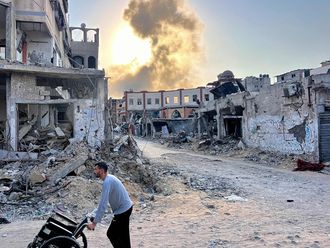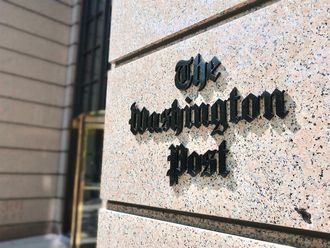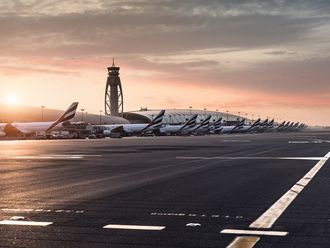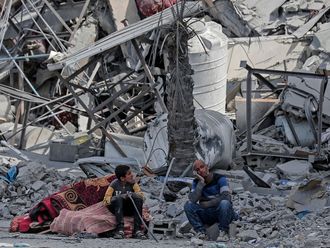Drive for an hour north-west out of Buenos Aires and you find yourself in polo country, lush fields, paddocks, tack shops, grand houses and stable blocks. There, in the village of General Rodriguez, is a cemetery, 649 graves marked by white crosses draped with rosary beads and adorned with plastic roses bleached to faded pink by the sun.
Nearby is a tin-roofed wooden church, a replica of St Mary's Roman Catholic Church in Port Stanley. This, though, is a cemetery with no bodies, save for one, that of Father Jose Fernandez, whose idea it was. A chaplain serving with the Argentinian army on the Falkland Islands, Father Fernandez found his own way of commemorating those of his countrymen killed in the conflict of 1982. The empty graves and the replica church are the result.
If relatives of the Argentinian dead cannot afford to travel to the islands, where the real bodies lie — those not entombed in the General Belgrano, that is — then they can come here, to this little piece of the Malvinas. The grass between the mock graves is uncut, the paint on the crosses flaking, the names faded to near invisibility. Father Fernandez died two years ago, and with him the will to maintain the memorial in perfect order.
A few families have attached new metal nameplates to the crosses — those of Roberto Nestor Estevez and Fabian Mario Gabrielli can now be read again — but the vast majority are anonymous. The church is a poignant, strange thing, proclaiming Stanley (always referred to here as Puerto Argentino) as home. But it was not home to these young men, and they were not welcome. The names may have faded, but not the usefulness of the Falklands as a rallying cry in Argentina, a well-worn tool for political distraction.
Militarisation
Prepare for more megaphone diplomacy as April 2, the anniversary of the invasion (‘recovery', if you are Argentinian) approaches. Cristina Fernandez de Kirchner, the country's president, is currently taking a warm bath in anti-British rhetoric, accusing the UK of militarisation of the South Atlantic.
In addition, she has persuaded Argentina's partners in the regional Mercosur trading bloc, including Brazil and Uruguay, to ban vessels flying the Falklands flag, part of a policy of isolating the islands internationally. There is also talk of informal discrimination against British exports to Argentina, worth more than £400 million (Dh2.3 billion) a year.
"Kirchner is completely cynical about this," says Fernando Iglesias, a former delegate of Argentina's parliament and member of one of the fringe political parties that help make up the country's fractured opposition. Kirchner, widow of Nestor Kirchner, her predecessor in the presidency, is a skilled political operator and has refashioned the Falklands issue, decoupling herself, and the people whose votes she needs, from the defeat of 1982. She has recently released a report into the war, commissioned shortly after its end by the governing military junta. The document, detailing a catalogue of errors, has allowed her to paint the invasion as reckless adventurism by generals and admirals, rather than an exercise of national will.
The vast crowds who flocked in ecstasy to the Plaza de Mayo in April 1982 were, apparently, the innocent dupes of warmongers. Senor Iglesias and other Argentinian intellectuals do not buy this neat remodelling of history. In an open letter signed on the internet by some 1,400 people, he and others say that a re-evaluation of the war must "entail the admission that the use of force in 1982 was unjustified". It goes on: "The blood of those who died in the Malvinas demands, above all else, that we avoid falling once again into the kind of false patriotism that led them to their death."
Purge of the Left
Demand for the country's soya and other agricultural products in China and elsewhere has helped maintain healthy growth, but inflation is about 25 per cent, and the black economy still employs about a third of the workforce. The armed forces, for so long the arbiters of power, have been emasculated. Officers who presided over the so-called Dirty War, which saw some 30,000 Argentinians murdered by the state in a purge of the Left, are dead or in prison, while the defence budget has been slashed. There are 234 graves in the cemetery at Darwin on East Falkland. Of those, 123 have no name, many Argentinian soldiers lacking dog-tags. Senor Iglesias believes his country's continued miscalculations hand Britain its arguments. "First we seize the islands by force, then we say we will not deal with the people who live there but only the British government, then we say we will not negotiate at all on the issue of sovereignty. The annex to our 1994 constitution says the Malvinas are beyond negotiation.
"We can sell the city of Buenos Aires but not the Falklands. This is a crazy kind of country, you know. The reality is we have to put good arguments. Think about the oil that could be there. You only have to negotiate with 3,000 people. It's very easy. The Kelpers [islanders] are the key." Senor Pozzo, one of the 770 men who survived the sinking of the cruiser General Belgrano by the British nuclear submarine HMS Conqueror, is not so confident.
"We have to be closer to the islanders, but they don't want to be close to Argentina. They want us to leave them in peace. I don't know if our country is doing the right things to obtain sovereignty. Maybe we will recover the islands in the next century. I don't know, but I know that war is not the right way to do it." And the dead of the Falklands war — does he think their bodies should one day be returned home so that their loved ones can mourn real graves? "They are at home."
— The Telegraph Group Limited, London 2012










